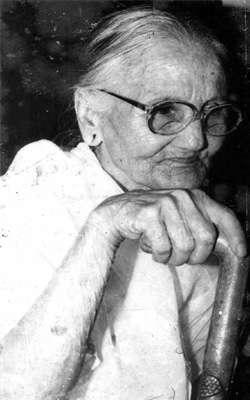|
The journey of Joymati begins in hardly 16 years of age when a cousin of Aideu showed a picture of her to Jyotiprasad, and he asked for her to be brought to his tea estate and prepared to play the part of Joymoti. Not unnaturally, Aideu was frightened and unwilling so Jyotiprasad coached her on what to do: how to walk, how to speak, how to look sad or happy. She earned accolades for her performance and her bold step. But back in her village, her family was ostracised. So much so that her parents would not even let her enter the house for fear of the society. The girl spent her life in a cowshed — a thatched hut— for the rest of her life, spanning more than seven decades, in utter penury.
She came back to her village, Panidihing. That is when she faced the villager's ire. "Who would marry a girl who had stayed with men in a camp for a month?". The heroine of Jyotiprasad Agarwalla's 'Joymoti' was forced to live as a spinster as nobody would marry her after the acting stint, a 'taboo' for women in those days. Another reason for her to remain unmarried was because she had to call her co-actor 'Bongohor-deo' (husband) in the film.
The world forgot about her after that. Joymoti was her only film, she did not get any other offers. She did not even get to see the film. Only in 1985, when the golden jubilee of Assamese cinema was celebrated, did the state government bring her a cassette of the remains of the film. She was also given a pension of Rs 1,000 a month.
After a long illness the heroine of Jyotiprasad Agarwalla's 'Joymoti' died on December 17, 2002. |



